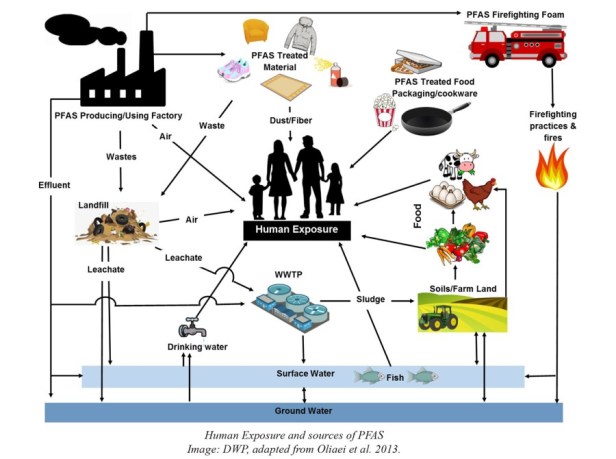[Blog] House bill would ban sale, production of PFAS in North Carolina
By Lisa Sorg | The Progressive Pulse | May 15, 2020

Read the full article by Lisa Sorg (The Progressive Pulse)
“Companies could no longer manufacture PFAS, also known as perfluorinated compounds, in North Carolina under a new proposal, House Bill 1109.
If enacted into law, the measure would also prohibit the export of the toxic compounds, ‘except for products specifically authorized or required to contain PFAS under federal law.’
The bill was introduced May 14; it has eight co-sponsors, all Democrats: Pricey Harrison, John Autry, Alison Dahle, Susan Fisher, Marcia Morey, Deb Butler, Zack Hawkins and Raymond Smith.
There are 5,000 types of PFAS. Most are used in, or byproducts of, the manufacture of dozens of waterproof and stain-resistant consumer goods, such as clothing, cookware, pizza boxes, microwave popcorn bags, and more.
Of the few types of PFAS that scientists have studied, all have been linked to various health problems in humans, including several cancers, thyroid disorders, low birth weight, high blood pressure during pregnancy, ulcerative colitis and high cholesterol.
The compounds are widespread in the environment, especially rivers, lakes groundwater and drinking water supplies. They are often referred to as ‘forever chemicals’ because they take decades to degrade.
The bill would allow DEQ to assess civil penalties of $5,000 to $25,000 for the first offense, and $10,000 for subsequent offenses. The maximum penalty for one month is $200,000.
It also would appropriate $100,000 in one-time money for additional monitoring and enforcement.
Several of the same sponsors also introduced two additional PFAS-related measures:
- HB 1108 would require any company that discharges PFAS into the waterways to disclose the types, amounts and concentrations in order to receive a permit from the NC Department of Environmental Quality.
The same information would be required of wastewater treatment plants, both public and private, that receive discharges from industry. Those plants would have to remove the PFAS before discharging or require the industrial source to do so…”
This content provided by the PFAS Project.
Location:
Topics: